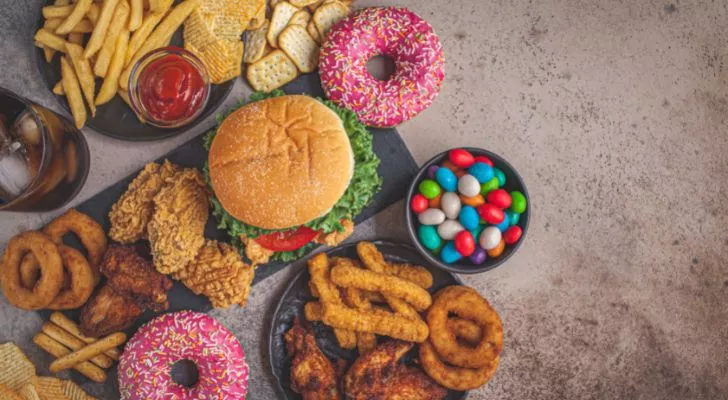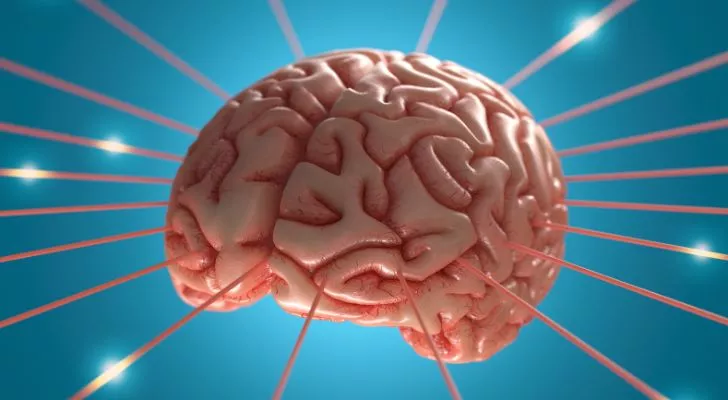Your body needs carbohydrates the same way cars need gas to keep moving.
When consumed, carbohydrates break down into glucose, which your body and brain use as its primary fuel source.
Without carbohydrates in your diet, there’s a high chance you’ll feel tired.
With that said, here are ten facts about carbohydrates you should know to live a healthier life.
Carbohydrates cause an acid attack on your teeth.

Your mouth is filled with millions of bacteria because it’s the perfect place for them to thrive.
After eating, the carbohydrates in your mouth enable the bacteria to produce acid that attacks the outer layer of your tooth.
Some carbohydrates that are bad for your teeth are white bread, cake, and potato chips.
If you ever consume these foods, remember to drink water to remove food particles that trigger an acid attack on your teeth.
Brushing your teeth before eating is also ideal for having a protective layer from highly acidic foods.
A low-carb diet can shorten your lifespan.

A study published in The Lancet Public Health shows that people with a low-carb and a high-carb diet have a higher death rate.
What causes a low-carb diet to shorten life expectancy is a lower intake of fruits and vegetables combined with a high intake of animal-based proteins and fats.
The findings of this study conclude that the lowest death rate comes from people who consume carbohydrates in moderation.
But if you still want to remove carbs from your diet, replace them with vegetables instead of meat.
Because vegetables have no cholesterol, unlike meat, and they have more fiber, that’s good for your digestive health.
Not all carbohydrates are bad for people with diabetes.

People with diabetes can still eat carbohydrates as long as they avoid the bad ones, which are simple or refined carbohydrates.
These bad carbohydrates make the symptoms of diabetes worse by increasing their blood sugar faster.
What diabetics should do instead is consume complex carbohydrates like oats, carrots, and broccoli.
They’re packed with nutrients and are digested slowly.
As a result, people with diabetes can still eat carbohydrates while managing their blood sugar levels.
Plants can produce carbohydrates because of photosynthesis.

Photosynthesis is a process of using sunlight, water, and carbon dioxide to make plants grow.
It occurs in the chloroplast, where sunlight converts water and carbon dioxide into oxygen and glucose.
But aside from using glucose for energy, it’s also used to create other carbohydrates such as starch and cellulose.
Starch is where excess glucose is stored, and it’s useful for plants to grow when they don’t receive enough sunlight for energy.
On the other hand, cellulose provides plants stability and can be found in plant cell walls.
Carbohydrates are the most consumed macronutrient.

Macronutrients are foods eaten in large amounts to make you healthy.
Besides providing energy, they also prevent your body from getting diseases.
The reason why carbohydrates are the most consumed macronutrient is due to their ability to give your body instant energy.
This is more helpful for people like construction workers who have a lot of physical activities throughout the day.
Keep in mind to consume more complex carbohydrates to prevent feeling tired after a short burst of energy.
Not consuming enough carbohydrates can lower blood sugar, which causes side effects like blurry vision, exhaustion, and lack of concentration.
It would help if you ate carbohydrates before and after working out.

Eating carbohydrates before working out gives you enough energy to boost your physical performance.
And during a workout, your body also tends to use the energy stored from your glycogen.
This is why it’s crucial to eat carbohydrates after exercising since it refills your glycogen.
Another reason to consume carbohydrates is their ability to boost your immune system after a workout.
The ideal time to eat carbohydrates and other macronutrients is two hours before working out.
For your post-workout meal, fitness experts recommend consuming carbohydrates between 15 minutes to an hour after exercising, depending on the intensity.
A high carbohydrate and low protein intake stunts a child’s growth.

When children consume a lot of carbohydrates, their insulin levels increase, resulting in reduced growth hormone that stunts growth.
Meanwhile, a lack of protein in children’s diets prevents bone development. That’s why a balanced diet is a must.
Because when kids eat the right amounts of carbohydrates and proteins, they’re able to maximize their growth.
Eating too many simple carbohydrates can increase hunger.

Consuming simple carbohydrates excessively leads to higher insulin levels and are digested quickly by your body.
Both of these cause you to feel more hungry even after eating a lot.
And since simple carbohydrates have a ton of added sugar, they make your brain produce dopamine, making you eat more of what you crave.
Now, you can still eat sweets without increasing hunger.
The key is to be mindful when eating sugary foods, as it disciplines you and makes you enjoy your cravings without feeling guilty.
You can lose weight without cutting carbohydrates in your diet.

The most important part of losing weight is portion control.
It helps you discipline yourself by only consuming nutritious foods that your body needs throughout the day.
Without portion control, cutting carbohydrates from your diet to lose weight would be ineffective.
A great way to start controlling your portion size is through meal prepping and cooking meals that are good for a week.
Because aside from preventing overeating, it also saves you time and money.
Carbohydrates aren’t the only energy source for your brain.

When your body doesn’t get enough glucose, ketones are what your body uses for energy.
Your liver makes them through the burning of fat.
Replacing carbohydrates with ketones makes you have a ketogenic diet.
You benefit from ketones as they act like antioxidants, preserve muscle mass, and prevent cancer growth.
However, ketones’ downside is that they make you prone to nutritional deficiency. However, you can solve this by taking dietary supplements.
Carbohydrates are often depicted as bad for your health, but this is a huge misconception.
Although carbohydrates can cause numerous health problems, there are still good carbohydrates that your body and brain need to function correctly.
So instead of eradicating carbohydrates from your diet, a better approach would be to identify which ones are good and bad.
Doing this allows you to make healthier decisions as an informed consumer.












